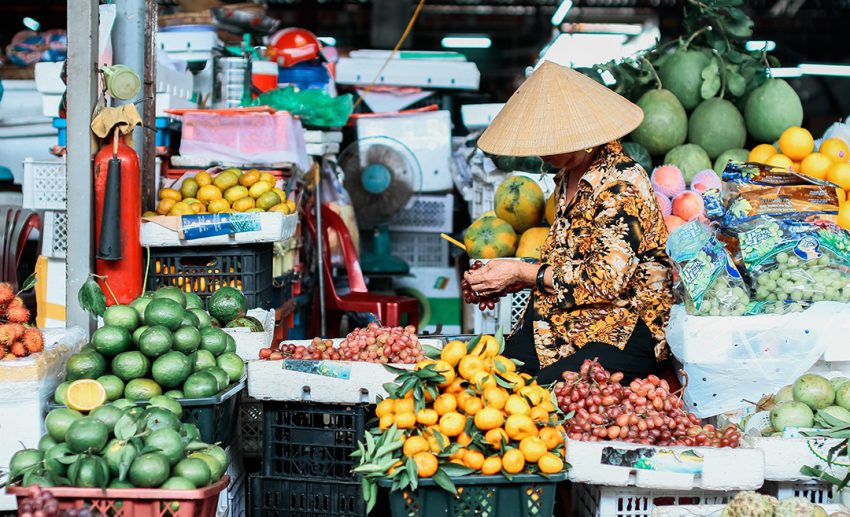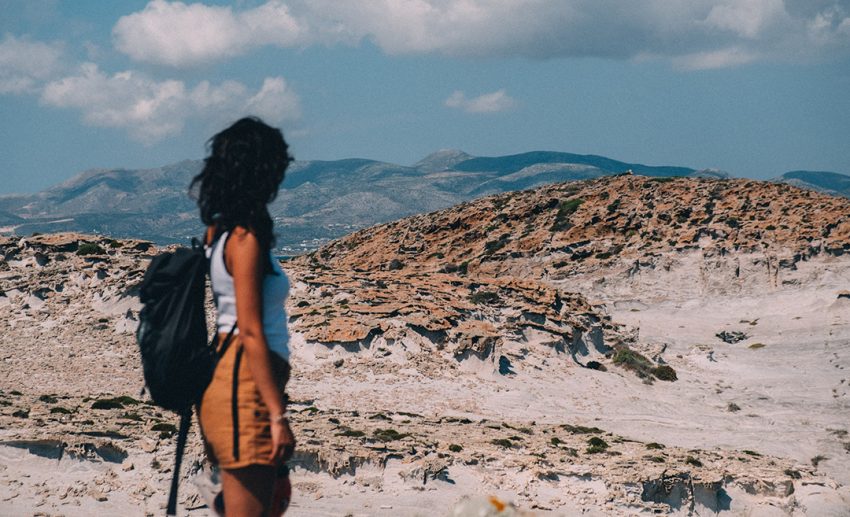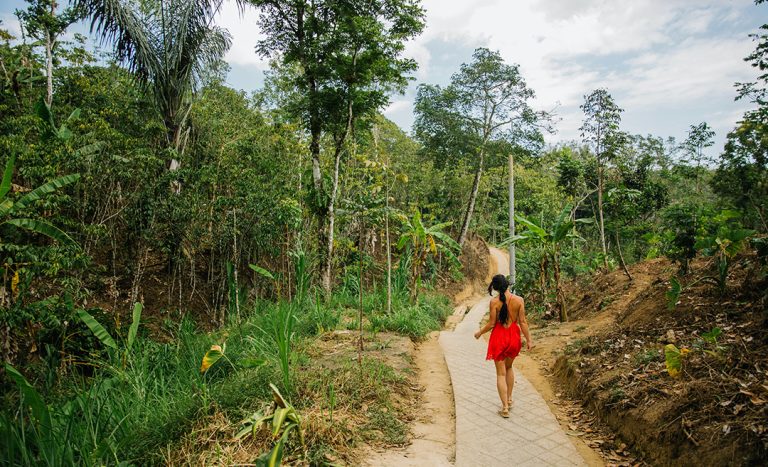After getting fully inoculated and overcoming the fear of being out in public again, I finally leapt to meet up with a good friend whom I hadn’t seen since 2021 began. We decided to catch up over coffee – and unlike myself, whose idea of travel pretty much encompasses lazing by the pool – she loves travelling. I love going on holidays with family and friends, but I wouldn’t consider myself a travel lover. I don’t enjoy plane rides, I hate being in line at immigration, and the journey sometimes isn’t worth the destination.
However, my good friend truly immerses herself in the country and all the culture it has to offer. Over our chat, she introduced me to the term ‘conscious travelling.’ My first thought was, “Is this another woke term for being eco-friendly?” There’s so much jargon these days, I wasn’t sure if this was just another term being thrown around. So, I got interested to know more and why it’s gaining popularity.

What is conscious travelling?
What immediately came to mind when this term was introduced to me was to be as eco-friendly as possible when you’re travelling. That’s not only what conscious travelling is about, and it’s certainly not about telling people to re-think travelling altogether. This brand new travelling mindset aims to create intentional and lasting impacts in the communities that we visit. If anything, it’s akin to ethical travel.

Why is conscious travelling necessary?
Tourism rakes in a profit of (ballpark figure) USD2.9 trillion globally, and you’re sure to ask yourself, “How can that not be a good thing for the people that live at these holiday destinations?” But it’s no surprise that not all communities reap the benefits of what tourism makes.
With plane ticket prices becoming increasingly cheaper (before the pandemic) and destinations becoming more accessible, overtourism also began. Conscious travelling aims to help communities by encouraging visitors to make sustainable impacts in the local economy through their plans and choices.

How can you be a conscious traveller?
It’s always important to be more sustainable in our daily lives, including when we travel. It’s pretty easy to jump on a plane, check-in at the hotel you’ve made a booking at, and enjoy dinner at that famous restaurant. But we need to base our choices on how we’re leaving a mark at these places we’ve chosen as our holiday destination instead of just participating in mass tourism.
How are we appreciating the cultures and hard work of the communities we visit, and instead of appropriating these communities’ excellent and hard work, how are we being responsible? Simple answer: Be more sustainable in your choices when visiting other countries.

What are some of the things that a conscious traveller does:
Go long or go home: If you have the means, make it a point to plan a long holiday instead of a short trip. There’s no way to avoid air travel, and instead of planning a couple of trips a year, opt for an extended vacation instead. While it doesn’t justify the carbon you’ve produced while flying, it certainly is a tiny step towards helping reduce carbon emissions.
Research and read: When visiting a foreign country, we are somewhat ambassadors of our own, and it’s crucial to be informed. Prepare yourself by researching and reading about the country and its culture. By doing so, you’ll know what to expect and can be a more respectful visitor.

Go local: I’m not saying no to visiting that cool beach bar you saw on Instagram; by all means, go for it. You’re on holiday after all. But for most of your vacation, you should always choose to eat at family-run restaurants or buy locally-made souvenirs. There are so many layers to the term ‘go local’ as well. Another prime example — instead of booking your stay at a hotel chain, why not book an Airbnb owned by a local family?
Explore intentionally: Sure, when we choose a destination, some landmarks are a must-visit. When doing your research, consider making a trip to less touristy areas to see what the local communities offer. Not only will your experiences be more authentic, but you’ll find a sense of personal fulfilment too.

Say no to cruelty: Some visitor attractions can seem, well, attractive to do. Riding an elephant or posing with a tiger (before being educated on this, I am ashamed to say I have participated) for the ‘gram might seem like a cool idea, but be aware of these places. Some practice animal cruelty, like drugging a tiger, to get the animals to ‘perform’. If you want to get up close and personal, go to sanctuaries that help rehabilitate animals instead.
Pack with the Earth in mind: Reduce your single-use plastics by packing reusable and planet-friendly items you can fit in your luggage. We’re talking reusable water bottles, coffee tumblers (for someone like me who loves her caffeine fix from local coffee shops), Ziploc bags, and whatever else you can think of!
There are many ways you can inject responsible decision-making into your travelling plans to become a conscious traveller. Still, essentially all it takes to become one is to lessen your impact.




